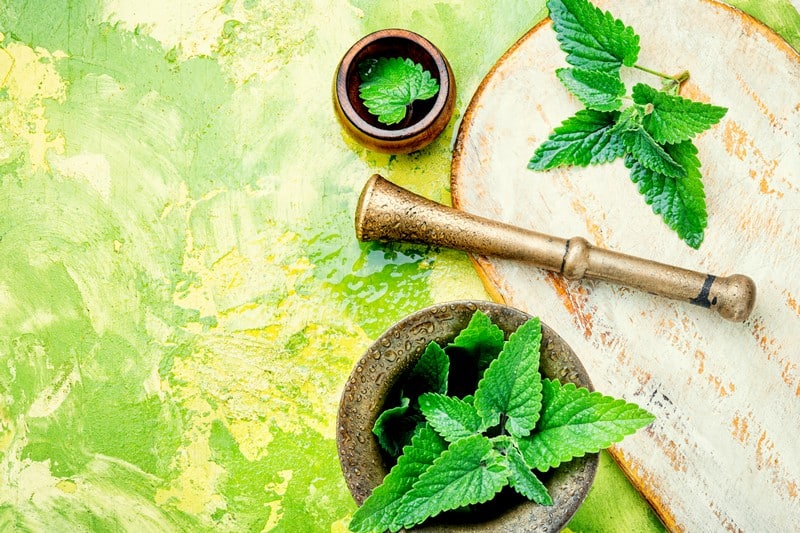Lemon Balm

Contrary to the name, lemon balm isn’t related to citrus fruit. Instead, lemon balm is a herbaceous plant that is a member of the mint family. The leaves have a mild lemon scent, and the plant produces small white nectar-filled flowers during the summer.
The leaves are used to create an extract that modern and folk medicine has proven to have carminative, digestive, sedative, analgesic, tonic, and antispasmodic properties. Wellness experts also believe that lemon balm extract has strong antiseptic properties that can help soothe minor wounds and skin conditions and accelerate healing. Lemon balm extract contains flavonoids, essential oils, various polyphenolic compounds, triterpenes, monoterpenoid aldehyde, monoterpene glycosides, and tannins.
Applying lemon balm extract to cold sores is one recommended approach to hastening the healing process. The caffeic, ferulic, and rosmarinic acids contribute to the extract’s antiviral properties and help keep infections at bay. Research also confirmed that applying lemon balm reduced the tingling, itching, stabbing, and burning sensation, as well as the tautness, swelling, and erythema consistent in cold sores.
Doctors recommend using highly concentrated lemon balm extract ointments three to four times daily to prevent lesions and soothe blisters quickly.










